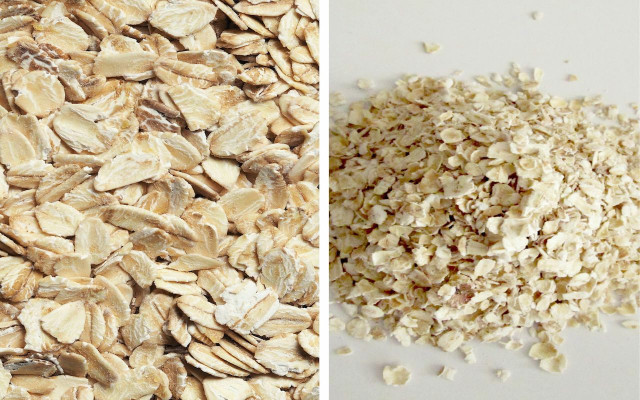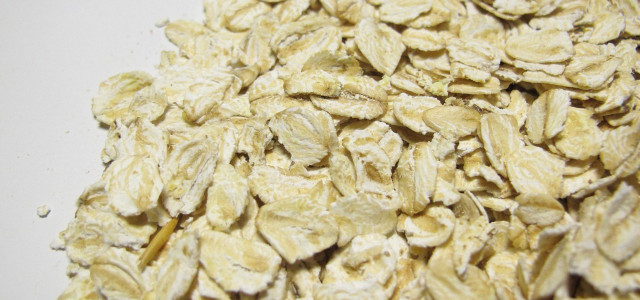Oats can be processed in several ways, and it can be difficult to figure out what the actual difference is. Let's take a look at old-fashioned vs quick oats, which are the most common kinds.
Oats are a whole-grain food and are one of the most nutrient-dense cereal grains. Not only are they packed with vitamins and minerals, but they’re also a healthy source of fiber, protein, and fat. Before oats are processed, they are known as groats – which is simply the whole grain oat kernel with the tough outside hull removed.
Did you know that the healthiest way to consume oats is by eating them in their pre-processed state? This is because groats contain the intact germ, endosperm, and bran, which provide the highest concentration of vitamins and nutrients. The contained fiber, known as beta-glucan, is also said to help boost your immune system.
There are several ways to process oats, but what makes them different from one another? Let’s take a closer look at old-fashioned vs quick oats.
Old Fashioned vs. Quick Oats

(Foto: Photo 1: CC0 / Unsplash / Łukasz Rawa | Photo 2: CC0 / Pixabay / dessuil )
Old fashioned and quick oats are two of the most common types you’ll find in recipes and on store shelves. While they look similar to one another, the different processing methods do have their own characteristics and purposes. Here’s the difference between old-fashioned vs quick oats.
Old Fashioned Oats
These are also commonly known as rolled oats, due to the way they are processed. The oat groats are steamed and slightly cooked (which stabilizes the healthy oils) before being flattened and rolled out. This ensures they don’t crack, allowing them to keep their nice oval shape. Due to the large surface area, this type of oats has a slightly quicker cooking time when compared to other types of oats.
Quick Oats
Similar to old-fashioned oats, quick oats are steamed as well, but then they are fully cooked before being dried and pressed. This means that quick oats take even less time to cook when compared to rolled oats. The downside is that these type of oats don’t hold their texture as well because the grains are thinner.
When it comes to choosing between old-fashioned vs quick oats, it helps to pay attention to the recipes. If you’re just making oatmeal on the stove, these two types of oats are interchangeable – it’s just the cooking time that changes. Most baking recipes call for rolled oats because they hold their texture better, so if you’re subbing quick oats in, the end result may not be what you were expecting.
Looking for ways to use up oats? We have plenty of recipes to use as inspiration:
- Homemade Oat Milk
- Protein Oats
- Overnight Oats
- Vegan Baked Oats
- Healthy Coconut Oatmeal Cookies
- 3 Ingredient Banana Cookies
- Easy Oatmeal Cookies
Other Types of Oats Explained



(Foto: CC0 / Pixabay / fanoutlookdk)
The oat grain is often cut and processed in several other ways, each with its own special properties.
- Steel Cut Oats: These are technically the healthiest type of oats available on the market. This type of processing involves a large steel blade that cuts the oat groats into manageable pieces that are quicker to cook than whole-grain oats.
- Scottish Oats: Similar to steel-cut in terms of processing, Scottish oats are not precooked or rolled. In this method, the oat groats are ground into incredibly small-sized pieces, which results in a creamier texture when cooked.
- Instant Oats: This type of processing is very similar to quick oats, but the oats are rolled even thinner and milled finer to enable quicker cooking than quick oats – generally only a minute or two on the stove.
- Oat Flour: This gluten-free flour is made by grinding oat groats down to a fine powder. You can easily make this type of flour at home by adding oat groats to a blender or food processor and blitzing them until just the powder remains.
Read more:
- How to Make Chickpea Flour: Homemade Recipe
- Types of Legumes: A Comprehensive List
- Best Morning Routine: 10 Tips for Healthy Morning Rituals That Will Kick-Start Your Day
Important Information regarding Health-related Topics.
** Links to retailers marked with ** or underlined orange are partially partner links: If you buy here, you actively support Utopia.org, because we will receive a small part of the sales proceeds. More info.Do you like this post?






